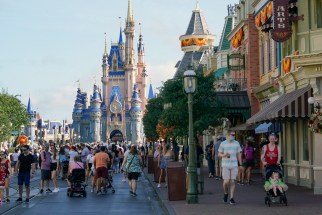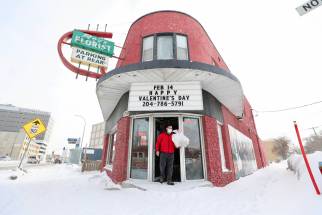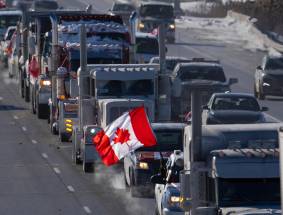Convoy protests drive into rural-urban divide
Read this article for free:
or
Already have an account? Log in here »
To continue reading, please subscribe:
Monthly Digital Subscription
$0 for the first 4 weeks*
- Enjoy unlimited reading on winnipegfreepress.com
- Read the E-Edition, our digital replica newspaper
- Access News Break, our award-winning app
- Play interactive puzzles
*No charge for 4 weeks then price increases to the regular rate of $19.00 plus GST every four weeks. Offer available to new and qualified returning subscribers only. Cancel any time.
Monthly Digital Subscription
$4.75/week*
- Enjoy unlimited reading on winnipegfreepress.com
- Read the E-Edition, our digital replica newspaper
- Access News Break, our award-winning app
- Play interactive puzzles
*Billed as $19 plus GST every four weeks. Cancel any time.
To continue reading, please subscribe:
Add Free Press access to your Brandon Sun subscription for only an additional
$1 for the first 4 weeks*
*Your next subscription payment will increase by $1.00 and you will be charged $16.99 plus GST for four weeks. After four weeks, your payment will increase to $23.99 plus GST every four weeks.
Read unlimited articles for free today:
or
Already have an account? Log in here »
Hey there, time traveller!
This article was published 14/02/2022 (1399 days ago), so information in it may no longer be current.
It was my first up-close-and-personal view of the urban-rural divide in Canada.
It was 1986, and I was a summer intern at the Calgary Herald. The Alberta government had announced seat belts would become compulsory the following year, and my editor wanted to know how that was playing in rural communities. So, he put me in a car and pointed me south.
Having lived in cities almost exclusively, I really had no idea how difficult this assignment was going to be. Seat belts did not appear to be a contentious issue; some provinces had introduced mandatory laws almost a decade earlier. Surely, nobody could deny the obvious benefits of vehicle restraints?
About an hour outside Calgary, I stopped at a gas station and wandered inside to find two locals chatting casually with the attendant. I identified myself and explained I was looking for comments about the seat belt law.
The man behind the counter was alarmingly expressionless. “I don’t think you want to be asking about stuff like that, here,” he said in a low but still somehow menacing tone.
The man behind the counter was alarmingly expressionless. “I don’t think you want to be asking about stuff (seat belt law) like that, here,” he said in a low but still somehow menacing tone.
I nodded, smiled and left.
That exchange was my crash course in good, old-fashioned rural libertarianism. Seat belts were not the issue; it was government was trying to force someone to do something. In many less populated regions of Canada, that isn’t going to fly.
I’ve come to understand in politics, while there are many divides in this country — English and French, Indigenous and non-Indigenous — the gulf between urban and rural may be among the most powerful. The so-called “freedom convoy” is a good case in point.

Organizers have portrayed it as a protest against COVID-19 pandemic restrictions in general, and vaccine mandates in particular. In reality, this is a group of mostly (but not exclusively) rural protesters bringing their anger over a whole range of issues to bear on urban dwellers.
There are quite a few obvious and unambiguous links between low vaccination rates, anti-vaccination activism and rural communities. There are city dwellers who don’t like mandates, but in some rural communities in southern Manitoba, not getting vaccinated is not just a decision, it’s a cause.
Now that they’ve brought the fight to Canada’s biggest cities and most important border crossings, the results have been nothing short of absurd.
From the far-right extremists who helped organize the convoy, to abuse the protesters have hurled at bystanders and — more recently — the discovery of guns, ammunition and body armour at border blockades, this is a protest that has assumed a presence that far outweighs the sheer numbers of protesters.
From the far-right extremists who helped organize the convoy, to abuse the protesters have hurled at bystanders and– more recently — the discovery of guns, ammunition and body armour at border blockades, this is a protest that has assumed a presence that far outweighs the sheer numbers of protesters.
Think of the convoy protest as a sequel to the popular animated movie A Bug’s Life. Shortly after the first trucks occupied downtown Ottawa, the convoy protesters suddenly rediscovered their inner grasshopper, an insect able in small numbers to torment a much more numerous species by sheer force of will.
Canada, welcome to “Revenge of the Grasshoppers.”
Utilizing semi-tractors and selecting diabolically clever targets (city centres, border crossings) has allowed this group to hit way above its political weight in the pandemic restriction debate.
Anyone concerned about how much disruption has been produced by such a small number of protesters should take note: this is just the beginning.
Anyone concerned about how much disruption has been produced by such a small number of protesters should take note: this is just the beginning.
Emboldened by the “success” of the freedom convoy, and abetted by the chronic political apathy that reigns supreme in urban communities, the vocal rural minority is looking for other ways to disrupt politics and government.
Remember: despite clear advantages in organization and caucus support, Manitoba Premier Heather Stefanson nearly lost the Progressive Conservative party leadership nomination last fall in a one-member, one-vote format to challenger Shelly Glover.
A former Conservative MP, Glover managed to sound enough dog whistles to draw support from a largely rural, far-right cabal of instant party members that was coalescing around potential candidate Ken Lee.
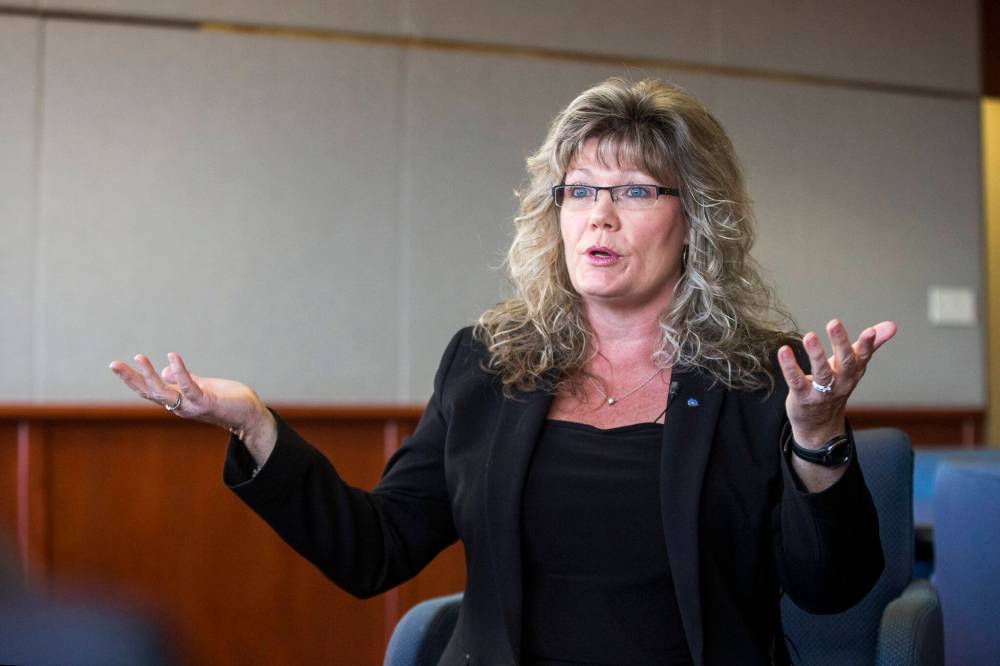
It is, however, a lot more difficult for a vocal minority to skew the results of a federal election even though, according to research from the University of Western Ontario and University of Calgary, the urban-rural split is more pronounced than ever.
In the 2021 election, the Liberals captured 86 of 116 ridings in the metropolitan areas of Toronto, Montreal and Vancouver; the Conservatives won just eight seats in those cities. Conversely, of the 150 least urban ridings in the country, the Tories took 81 and the Liberals only 34.
What it means is even if the next Conservative leader is closely aligned with far-right rural sensibilities, the Tories will have very little chance of breaking through and dethroning the Liberals.
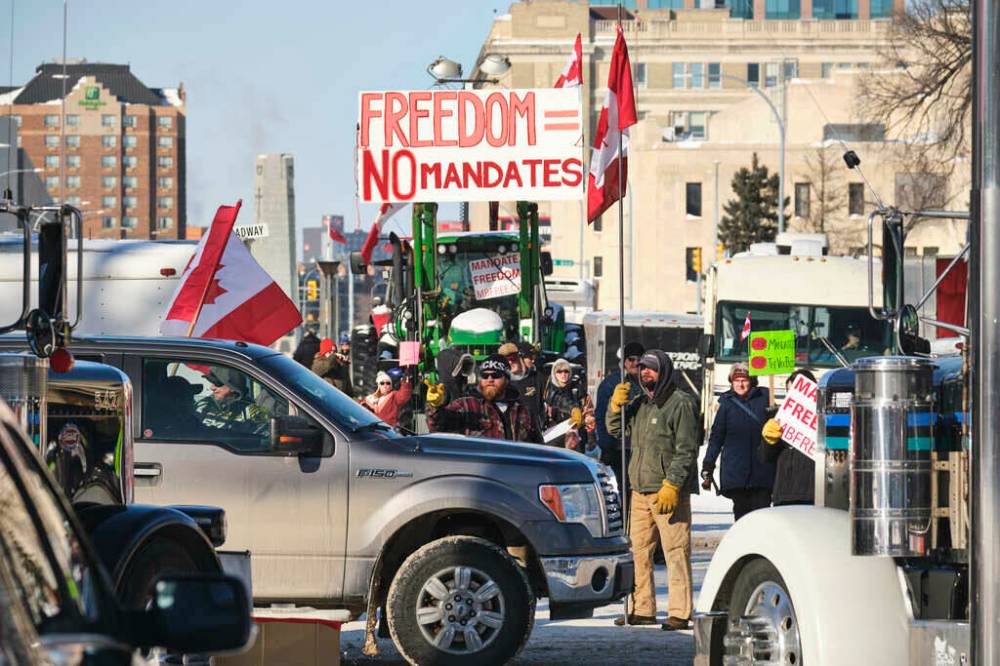
If public opinion polls are any indication, the convoy protesters haven’t swayed a single person to their cause. Instead, the disruption from the protests has made the gross majority of people in this country more unsympathetic to the cause of unvaccinated Canadians.
For the protesters, none of that matters. What matters is the thrill they get from watching all the city-dwelling ants scurrying around in a panic.
dan.lett@freepress.mb.ca


Born and raised in and around Toronto, Dan Lett came to Winnipeg in 1986, less than a year out of journalism school with a lifelong dream to be a newspaper reporter.
Our newsroom depends on a growing audience of readers to power our journalism. If you are not a paid reader, please consider becoming a subscriber.
Our newsroom depends on its audience of readers to power our journalism. Thank you for your support.



